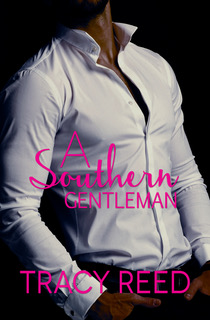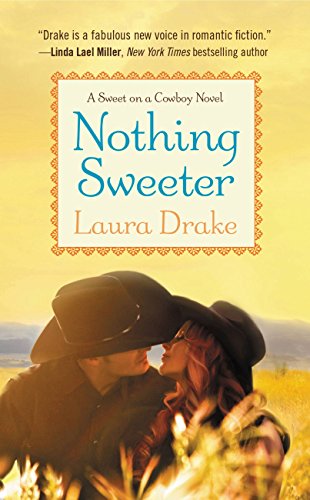I HAVE A FRIEND WHO WANTS TO WRITE. . .
January 15, 2020 by Rebecca Forster in category The Write Life by Rebecca Forster, Writing tagged as etiquette, Family, mentor, mentoring, new author, writing
So my brother called the other day (actually 2 days into the new year) and said: I have a friend and she wants to write a book. Can you just talk to her and tell her everything you know? I already gave her your phone number.
I have five brothers and sisters, a mom and any number of cousins, in-laws and friends who have each made this request on various occasions. I am always happy to help new writers, but I’m not crazy about my phone number passed around. First, I was probably the only teenage girl in the world who hated talking on the phone and that hasn’t changed in the last 50 years. More importantly it is impossible to distill 30 plus years of writing and publishing experience into a quick conversation and have it benefit a new writer.
The good news is that there is email. Email allows me to put information into a manageable format, provide links to appropriate sites that will help the writer, and allow that person to save the conversation for future reference. Here are some thoughts for the author willing to pay it forward, the writer looking for help, and the brothers and sisters who love to share the author in the family.
THE REFERER: Ask (preferably not with the new writer standing in front of you) if the author has time to help and how they would like to be contacted. Always allow the author to beg off even though most won’t. Writing is a time consuming business and multiple requests can feel overwhelming especially when an author is in the middle of a big project.
THE REFEREE: Be prepared. This tells the author that you are willing to work hard. Preparation should include a basic understanding of what you want to write (genre, form, etc.) and your goal (traditional or indie publishing, to create a career, expand a hobby). Have a short list of specific questions. Don’t try to cover the entire industry in one conversation.
Be respectful. An established author has built her business through trial and error, hard work, rejection and acceptance. Often she has paid for classes and conferences. Respect her hard work, commitment, and risk.
THE AUTHOR IN THE MIDDLE: Be gracious and as effective as you can be. A new writer will be nervous speaking to an established author, so put her at her ease. Then remember that there is a fine line between useful information and too much information. Usually it is possible to tell how much the Referee can absorb from their first contact. If a new writer can’t articulate whether they want to be an indie or a traditionally published author start with the basics, direct this writer to blogs on publishing and offer recommendations for coaches and writing classes. The nuances of the industry would be lost on a true newbie.
Set parameters. I am always grateful when a new author asks if it’s okay to check back in. I love the request as much as I love to hear the progress. As new writers become grounded, their questions often help me rethink my work as much as it helps them move forward.

Don’t miss Lost Witness, Rebecca’s newest addition to The Witness Series, a Josie Bates Thriller.
Join over 2 million readers of The Witness Series!
0 0 Read moreHeck Yeah! Raising Creative Cain (and Abel)
July 15, 2011 by A Slice of Orange in category Archives tagged as creative children, mentoring, parenting It’s not easy being the only normal person in a house full of creative folks, just ask my husband.
It’s not easy being the only normal person in a house full of creative folks, just ask my husband.
A high school football player who grew up to be a superior court judge, he married me when I was a corporate babe with a regular paycheck and my own benefits. When I turned full time fiction author he was proud, albeit confused. All those years on the corporate ladder, an MBA and I suddenly I wanted to write stories about made up people, beat myself up when I was rejected and spend sleepless nights wondering if I had what it really takes even after publishing 23 books? I made him crazy.
When I bore him two handsome sons who preferred ballet to baseball, he had to take a full-blown time out. Not only did he have to deal with his own momentary disappointment that his sons would be wearing jock straps under tights instead of football uniforms, he had to prepare himself for parenting challenges that were a little more complicated than the shake-it-off-suck-it-up variety.
Thankfully, he had already watched me go through ‘creative’ growing pains. But I was an adult, able to analyze my own journey as I went from a corporate to creative career. Children were a different matter all together – especially boy children.
Girls can become divas and everyone swoons, yet for boys who choose to sing, dance and act, their formative years can be tough. As they grow older, the boy who can kick a field goal is revered over the boy who can high kick. It is up to parents to help their children navigate the taut rope that runs between nurturing a truly talented kid and putting on blinders regarding the impact their creative tendency might have on their overall maturity.
Now that our children are in their twenties and pursuing their chosen professions, I can look back and pick out a few key decisions that helped us raise well-adjusted young men who are constructive as well as artistic.
BE AWARE
Watch for signs that a child’s creativity is becoming obsessive or a source of ridicule at school. When our youngest joined the girls’ dance team to meet a PE requirement we had an honest conversation about the social fall-out. Luckily, he was a self-assured kid who handled it well and overcame the negatives by involving himself in journalism, science and other disciplines that created ‘cross-cultural’ friendships at school. He also never lacked for a date since he was the only boy on the team. According to him, this was a huge benefit.
BE CHOOSY
We did not pour money into dance, voice and acting classes (no matter how much they begged). Instead, we made sure that the cost/benefit was in line before we committed to any instruction. We never paid the fees to have our kids in the chorus of a huge production at the local theatre just so they could appear on stage. Instead, we found out what they would be taught. If they were going to be in the chorus but had the opportunity to have a true learning experience (sets, costuming, acting instruction) then our money was well-spent. The point of classes is always to move them forward, not just showcase a cute kid.
BE HONEST
As our children grew in their performance skills, we made a conscious choice to be realistic, objective and honest about their abilities. We did not gush over our children (even when we wanted to). On the other hand, we did not criticize and beat them up for being less than perfect on stage. We gave praise when it was earned and navigated criticism with questions and comments that led them to self-examination. We enlisted the help of their directors and coaches. The one thing we praised consistently was effort. Getting on a stage, sharing your writing or singing for a crowd is never easy. Any person – young or old – who publicly unveils their creativity deserves praise for courage alone. Yet, to consistently praise or belittle a young talent leads to the inability to view themselves objectively and may keep them from finding their true voice. We tried to find the correct ‘notes’ for praise and criticism for each performance.
Finally, we pointed out that the real world is full of stars. Honesty as children grow into an artistic career will help them deal with both rejection and acceptance graciously. It will also help them decide if they are willing fight the battles inherent in such professions or settle for less than stardom.
BE PRACTICAL
Both our boys wanted to be in theatre when they were young. When they hit college their paths diverged: the eldest found his passion was film and our younger son became a playwright. At this point, our job was to help them analyze the reality of their career choices. We talked about salaries, cost of living, family obligations should they marry and career stability. These conversations are ongoing and important in terms of creating a foundation for living off the stage.
By the end of their college careers, the youngest one was already a published playwright and, this year, he was a finalist in the O’Neill Awards competition. Our oldest found he had a keen eye for movie production and marketing and now runs his own talent management firm and is producing his first movie. They both are still working in industries they love, just not in the capacity they envisioned as children.
So, heck yeah! Raise a little creative Cain or Abel. Just make sure he or she is able to handle the pressures, challenges, heartaches and, yes, triumphs that come with choosing a creative career.
(l) Eric, playwright now serving in the Peace Corps in Albania. (r) Alex, a talent manager and producer.
0 0 Read moreAffiliate Links
A Slice of Orange is an affiliate with some of the booksellers listed on this website, including Barnes & Nobel, Books A Million, iBooks, Kobo, and Smashwords. This means A Slice of Orange may earn a small advertising fee from sales made through the links used on this website. There are reminders of these affiliate links on the pages for individual books.
Search A Slice of Orange
Find a Column
Archives
Featured Books
A SOUTHERN GENTLEMAN
"A woman walks into a crowded Manhattan bar and meets a nice southern gentleman." That sounds like the beginning of a bad joke or the beginning of an intriguing love story.
More info →Newsletter
Contributing Authors
Search A Slice of Orange
Find a Column
Archives
Authors in the Bookstore
- A. E. Decker
- A. J. Scudiere
- A.J. Sidransky
- Abby Collette
- Alanna Lucus
- Albert Marrin
- Alice Duncan
- Alina K. Field
- Alison Green Myers
- Andi Lawrencovna
- Andrew C Raiford
- Angela Pryce
- Aviva Vaughn
- Barbara Ankrum
- Bethlehem Writers Group, LLC
- Carol L. Wright
- Celeste Barclay
- Christina Alexandra
- Christopher D. Ochs
- Claire Davon
- Claire Naden
- Courtnee Turner Hoyle
- Courtney Annicchiarico
- D. Lieber
- Daniel V. Meier Jr.
- Debra Dixon
- Debra H. Goldstein
- Debra Holland
- Dee Ann Palmer
- Denise M. Colby
- Diane Benefiel
- Diane Sismour
- Dianna Sinovic
- DT Krippene
- E.B. Dawson
- Emilie Dallaire
- Emily Brightwell
- Emily PW Murphy
- Fae Rowen
- Faith L. Justice
- Frances Amati
- Geralyn Corcillo
- Glynnis Campbell
- Greg Jolley
- H. O. Charles
- Jaclyn Roché
- Jacqueline Diamond
- Janet Lynn and Will Zeilinger
- Jaya Mehta
- Jeannine Atkins
- Jeff Baird
- Jenna Barwin
- Jenne Kern
- Jennifer D. Bokal
- Jennifer Lyon
- Jerome W. McFadden
- Jill Piscitello
- Jina Bacarr
- Jo A. Hiestand
- Jodi Bogert
- Jolina Petersheim
- Jonathan Maberry
- Joy Allyson
- Judy Duarte
- Justin Murphy
- Justine Davis
- Kat Martin
- Kidd Wadsworth
- Kitty Bucholtz
- Kristy Tate
- Larry Deibert
- Larry Hamilton
- Laura Drake
- Laurie Stevens
- Leslie Knowles
- Li-Ying Lundquist
- Linda Carroll-Bradd
- Linda Lappin
- Linda McLaughlin
- Linda O. Johnston
- Lisa Preston
- Lolo Paige
- Loran Holt
- Lynette M. Burrows
- Lyssa Kay Adams
- Madeline Ash
- Margarita Engle
- Marguerite Quantaine
- Marianne H. Donley
- Mary Castillo
- Maureen Klovers
- Megan Haskell
- Melanie Waterbury
- Melisa Rivero
- Melissa Chambers
- Melodie Winawer
- Meriam Wilhelm
- Mikel J. Wilson
- Mindy Neff
- Monica McCabe
- Nancy Brashear
- Neetu Malik
- Nikki Prince
- Once Upon Anthologies
- Paula Gail Benson
- Penny Reid
- Peter J Barbour
- Priscilla Oliveras
- R. H. Kohno
- Rachel Hailey
- Ralph Hieb
- Ramcy Diek
- Ransom Stephens
- Rebecca Forster
- Renae Wrich
- Roxy Matthews
- Ryder Hunte Clancy
- Sally Paradysz
- Sheila Colón-Bagley
- Simone de Muñoz
- Sophie Barnes
- Susan Kaye Quinn
- Susan Lynn Meyer
- Susan Squires
- T. D. Fox
- Tara C. Allred
- Tara Lain
- Tari Lynn Jewett
- Terri Osburn
- Tracy Reed
- Vera Jane Cook
- Vicki Crum
- Writing Something Romantic
Affiliate Links
A Slice of Orange is an affiliate with some of the booksellers listed on this website, including Barnes & Nobel, Books A Million, iBooks, Kobo, and Smashwords. This means A Slice of Orange may earn a small advertising fee from sales made through the links used on this website. There are reminders of these affiliate links on the pages for individual books.







































